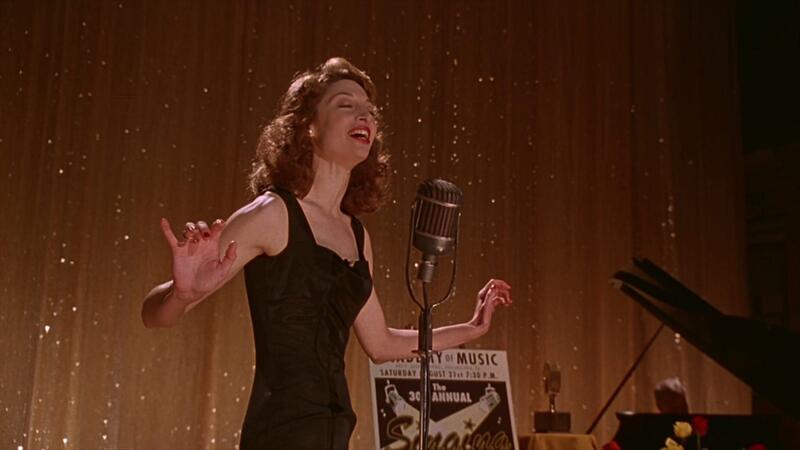You Probably Missed This Film When It Came out 25 Years Ago. Don’t Let That Happen Again.
It’s been a banner year for reexamining the role of women in popular music. Jewish singer-songwriter Carole King was finally, finally, finally inducted into the Rock & Roll Hall of Fame as a solo artist, and not just as a writing partner to her ex-husband Gerry Goffin. A new documentary on fellow solo inductee Tina Turner did the work to untie the icon from Ike Turner, her longtime collaborator and abuser. Lesley Gore’s “It’s My Party” went viral on TikTok, prompting new inquiries into her status a singer, composer, and lesbian icon. And Peter Jackson’s Beatles documentary Get Back dispelled long-held racist, sexist myths about Yoko Ono’s role in the band’s breakup. (Spoiler alert: She had nothing to do with it!)
As we look back and give women in music the attention they deserve, I have a movie recommendation for you: Grace of My Heart, which celebrates its 25th anniversary this year. The film was written and directed by Allison Anders and stars Illeana Douglas as Denise Waverly (born Edna Buxton, a name quickly changed by a music executive), a young singer and songwriter looking to make her mark on an industry that prioritized male genius and a highly sculpted public image over authenticity and honesty. The film is a highly fictionalized biopic of Carole King and takes place between the late 1950s and the early 1970s. And it deserves way more attention than it’s ever been afforded.
I love Grace of My Heart for its killer soundtrack, featuring original music from the likes of Joni Mitchell, Elvis Costello, Burt Bacharach, and Gerry Goffin himself. I also love it because it dares to depict an unsanitized version of the early 1960s pop music scene, one that contradicts the manufactured squeaky-cleanness that usually pervades stories about the music of that era. And I love Douglas’ leading performance. If you are a Jewish creative woman who loves to cry along to “So Far Away,” you’ll see yourself in Denise Waverly’s quiet confidence, and in the joy she brings to her work.
There are small revolutionary moments all throughout Grace of My Heart, and depictions I’ve rarely seen on screen elsewhere, much less in a music biopic about the early 1960s. Denise Waverly buys a diaphragm, a once-common method of birth control, and we see her prepare to use it. (It accidentally ends up on the ceiling, but it’s still a pretty special moment.) Months after giving birth to her daughter, Waverly lactates while in session in the studio, and the moment is played for laughter, not disgust. She also gets an abortion through a back-channel doctor in the mid-1960s. In the current moment, with Roe v. Wade receiving its most significant challenge in decades, it feels important to witness where we came from and the safety we will give up if abortion is not legal and accessible.
As Grace of My Heart weaves through time and trends, we meet stand-ins for many beloved characters from music history. A golden-voiced Jennifer Leigh Warren plays Doris Shelly, lead singer for a girl band that mirrors The Shirelles (who were the first to record Carole King’s “Will You Love Me Tomorrow?”). Eric Stoltz plays a beatnik-y, philandering version of Gerry Goffin. Matt Dillon brings intensity to a version of The Beach Boys’ Brian Wilson. And Bridget Fonda plays Kelly Porter, an all-American singer whose entire image has been carefully molded by her PR team but who has a secret—she’s gay, and in love with her “roommate.”
Kelly Porter is Grace of My Heart’s stand-in for Lesley Gore, who came to musical prominence as a 16-year-old with the aforementioned “It’s My Party.” Gore, a gay Jewish woman born Lesley Sue Goldstein, co-wrote “My Secret Love” for the film—a song that depicts Porter’s heartache at not being able to live her life with the woman she loves. It’s daring filmmaking to examine the consequences of the heteropatriarchal 1960s music industry, and it’s especially daring to include a person who actually suffered under the narrow worldview that stopped popular artists from being themselves. For a film that’s interested in authenticity and a kind of critical nostalgia, I can’t imagine a better way to examine Gore’s fascinating story.
My favorite scene in the movie is the very last one, in which Waverly—who primarily wrote songs for other people throughout her long career—finally gets the space and trust to record her own music on her own terms, mirroring Carole King’s groundbreaking 1971 achievement with Tapestry. We’ve seen her go through some of the most difficult human experiences, and, after everything, she grounds herself in her music. She waited, through trials and traumas, for the world to be ready for her, and finally, the world embraced her. Grace of My Heart succeeds because it carves out a space for true originality. It values the artist, not just the commercial work she produces.
So why didn’t this great movie get more attention when it came out? It may have come down to timing. Grace of My Heart was swallowed up by the box office of 1996, released at the end of a summer of high-budget blockbusters that included Independence Day, Twister, and Mission: Impossible. Maybe audiences weren’t looking for a small, personal story at that point—maybe they were not unlike Denise’s producer at the beginning of the film, who prioritized big money over potentially great art. But now, we’ve all been stuck inside for almost two years. We’re exhausted by the news, we’re accustomed to doom and gloom, and we’re oversaturated with major studio franchise films. There couldn’t be a better time to watch a small, courageous movie about having the strength to do what you love.







